A Reaction to Writers Write
Writers write. It’s true. But, why does that phrase potentially cause so much angst, so much guilt? Perhaps it’s because the phrase is commonly paired with the following Isaac Asimov quote: “Whenever I have endured or accomplished some difficult task – such as watching television, going out socially, or sleeping – I always look forward to rewarding myself with the small pleasure of getting back to my typewriter and writing something. This enables me to store up enough strength to endure the next interruption.” This first time I encountered Asimov’s quote it was mind-blowing, quirky and inspiring. It made me wonder why I ever watched Grey’s Anatomy, why I ever took naps, why I wasted time at my husband’s workplace Christmas party.
The longer I contemplate Asimov’s words, though, the more they make me wonder if I’m cut out for life as a writer. If I’m really a writer, why do I wrestle with God and my sheets every morning when the blasted alarm beckons me to my computer to meet a deadline or write that perennial column? If I’m really a writer why do I prefer coffee clutches with Margie or a phone conversations with Cher to editing that weed-infested piece of plot in my YA novel? If I’m really a writer why do I look forward to those quintessential, yet cliché moments on The Bachelor: After the Final Rose?
Everyday Writers Defined . . .
Lately I’ve been realizing that the writers write line cannot – will not – define me. The problem with the phrase, what actually seems to bug me about it, are the connotations it espouses. It seems to nefariously whisper, writers write all the time (they don’t do much of anything else; and if they do, they should be longing to write instead). When the connotations and implications of this tag phrase are spelled out like this, they seem slightly crazed, graceless and indicative of a workaholic lifestyle that may have suited brilliant prolific Isaac. But, it’s definitely not for everyday writers like me. Writers like me definitely write. We also make love, make dinner, and try to make ends meat. We write and we live. We live and we write.
We are writers (even when we’re not writing). If we live in the truth of that, we free ourselves from this mixed up notion that writers write (all the time). We realize that our lives and days are full of seasons and callings that overlap with and intersect into our call to write. Perhaps we’re writers. But, we’re also puppy raisers, kid raisers, wives and beach combers, crazy aunts, worshippers, and friends. This cornucopia of differing hats makes our writing life and our writing richer, more informed, organic and embodied.
Maybe we just need a new paradigm to frame the writing experience, a fresh and true and freeing phrase. This new paradigm should not be an excuse to slack in discipline, to roll over in bed when a deadline is due. It should not be carte blanche to tuck Writing Group editorial notes away and never rework menacing manuscripts. And, it should not be a Get Out of Jail Free Card when an editor finally bites on a query and requests sample chapters (that have yet to be written).
This new paradigm should give writers freedom and guiltless space to live full and vibrant lives: abundant lives. Never again should we feel guilty that we shopped for jeans to make impossible butts look cute, instead of writing. Never again should we feel guilty for taking a vacation, being a friend, burying a loved one, watching a sunset, snuggling our kids, going to seminary, going to the gym, or enjoying a good cup of dark roast instead of writing.
Never again should we feel guilty about ‘wasting’ a morning watching Oprah (one of my best book ideas actually came from an O episode, by the way) instead of writing. Instead, we should fill our lives with the fullness of living, and come to our work as writers with the kind of delight in the writing process that Isaac Asimov must’ve viscerally known.
A New Paradigm
When I imagine a quote offering a fresh paradigm for the writing life, I think of Natalie Goldberg’s, Writers live twice . . . from Writing the Bones. She offers, "Writers live twice. They go along with their regular life, are as fast as anyone in the grocery store, crossing the street, getting dressed for work in the morning. But there's another part of them that they have been training. The one that lives everything a second time. That sits down and sees their life again and goes over it. Looks at the texture and the details."
Perhaps this phrase will be adopted as a new paradigm for writers. Perhaps it will espouse hope in writers, like me, who have full and messy lives. Perhaps it will free writers to write as a means of enriching their lives, of living it twice. And, perhaps, it will reveal that those who live life fully and deeply – present to each moment – have more to write about.
Writers often wear many hats, juggle many plates, multitask with the best of them. Just think. Elizabeth Gilberty would never have had the NY Times best-selling smash, Eat, Pray, Love if she had never eaten, prayed or loved deeply. Madeleine L’Engle wouldn’t have written my favorite book, Circle of Quiet if she hadn’t taken time to be, to know ontology, to stop frenetically writing for periods of time.
If we listen to another renowned, prolific and world-changing writer, who penned: “Never compare yourselves with others. Only compare yourself to yourself.” We will be free to let go of Asimov whispers and realize that the writing life is a seasonal journey just like every other path we walk. Sometimes writers are crazed with an idea that won’t let them sleep and have butt in chair for eighteen hours a day. Other times, we feel dazed by rejection and need to take a break, take a walk, take a sabbatical, take a long drink of cold cold water. Yes, writers write. But, writers also loiter and read and sing and play and cook and live twice, too.
"Writers live twice. They go along with their regular life, are as fast as anyone in the grocery store, crossing the street, getting dressed for work in the morning. But there's another part of them that they have been training. The one that lives everything a second time. That sits down and sees their life again and goes over it. Looks at the texture and the details."
- Writing Down the Bones by Natalie Goldberg

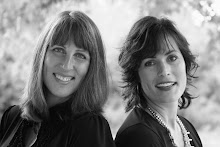

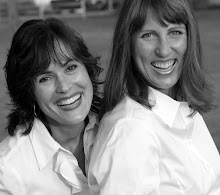

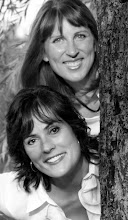
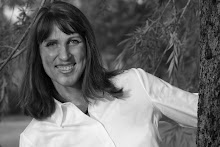
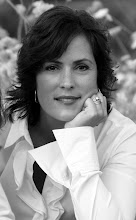
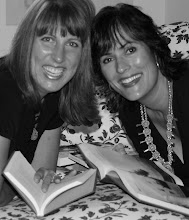

No comments:
Post a Comment